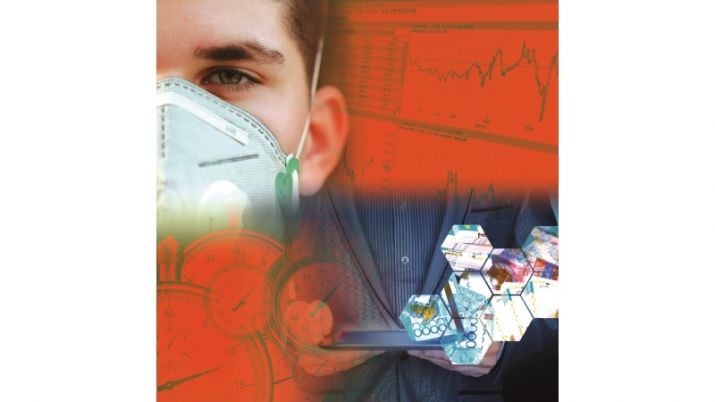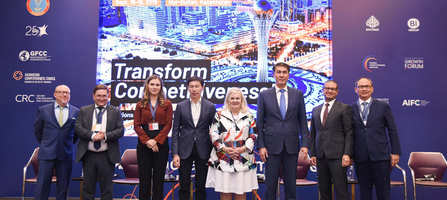
News
Support and do not interfere
16 July 2020

The economic challenges that Kazakhstan faces are mainly due to external factors-falling commodity prices and the coronavirus pandemic.
In this regard, the President stated the need for a new economic course that will lead to the change of the current raw material economic model, vulnerable to crises, to a more progressive and competitive one.
First of all, the head of state noted the need for a high-quality choice of development priorities and rejection of inefficient programs in favor of key vectors of long-Term growth, such as health, education, low-carbon technologies, R & d, and the environment. The most important task is to support domestic exporters, especially manufacturers of high – value products.
According to the Head of state, the coronavirus pandemic, oddly enough, has contributed to the emergence of new niches and opportunities. Therefore, in addition to maximum saturation of the domestic market, it is necessary to create a competitive export product and ensure its delivery to the markets in the shortest possible time, and provide comprehensive support to exporters of non-primary products.
– The prospects for the growth of the raw material economy in Kazakhstan are almost exhausted, – says the expert, partner of the center for research and consulting Kuanysh Zhaikov. – Anticipating this, Nursultan Nazarbayev, at the beginning of the formation of independent Kazakhstan, adopted a course for industrial and innovative development of the country. A special area of development was the manufacturing industry, which should become the main driver of the country's industrial growth. During the years of industrialization, thousands of new modern high-tech industries were created, which provided the production of hundreds of new products and contributed to the creation of thousands of jobs. In 2010, the First President launched a program for accelerated industrial and innovative development of the Republic of Kazakhstan. At that time, the goal of the program was to give stability to the economy in the face of crisis phenomena in the world. The second five-year plan (2015-2019) focused on the manufacturing industry, which is most resistant to external economic shocks and can become a "safety cushion" for the Kazakh economy. 14 priority sectors of the manufacturing industry were identified and the support tools focused on them. The implementation of the program has led to positive changes. And in 2017, the third modernization program was launched. The emphasis is placed on efficient enterprises in the manufacturing sector, focused on saturating the domestic market with high-quality products and entering the export market.
According to Kuanysh of Raikov, projects of innovative reforms of the economy inherent in all government programs and documents, but their implementation is not always effective. This situation has been repeatedly criticized by the President, the Prime Minister and Members of Parliament. However, inertia remained in the state apparatus, which was facilitated by the previous stability in the oil market and the prospects for growth in raw material production.
According to the expert, the situation changed dramatically in 2020. The main problem of slowing down the growth of the Kazakh economy is not even in quarantine measures, but in a sharp drop in oil revenue. A "double whammy" is expected – low demand for oil against the background of low oil prices. The world Bank forecasts that crude oil prices will not recover soon, and this process may take several years. Therefore, Kazakhstan, as an oil country, will lose foreign exchange earnings from its sale, and the state will not receive tax revenues. Forecasts of many experts do not fully take into account the possibility of reducing economic activity in Kazakhstan by the end of this year. This is because they do not take into account the worst expectations for the global economy to fall since the great depression.
Now government is scheduled two periods of action, continues Kuanish of Raikov. – The first – short-term, until the end of this year, is to save people and the economy in a pandemic and is happening before our eyes. The second is long-term, designed for life after 2020. At an extended government meeting on July 10, President Kassym-Jomart Tokayev focused on long-term measures after the situation with the coronavirus has stabilized.
According to Kuanysh Zaikova, the Head of state committed itself to liberalization. We are talking about measures of deregulation and the withdrawal of the state from a number of areas of economic life. It is necessary to eliminate the actual monopolization of certain markets and sectors of the economy, which really hinders the development and freedom of entrepreneurship. Without this, financial injections and various support measures will not have a result.
In this regard, for example, it is necessary to reform the activities of the quasi-public sector. Although the President did not directly say at the Government meeting that it should be reduced, he spoke harshly on the dividend policy.
Thus, the funds earned by quasi-state companies should go to the budget, and not be distributed for other purposes. Now, when the state is experiencing a huge burden, it is necessary to direct all the profits received to fulfill the declared social obligations and invest in human capital.
Support of entrepreneurs
Significant assistance has also been provided to entrepreneurs, who should become the main driver of the formation of the middle class – the basis of any country's economy.
– As an important measure of support, small and medium – sized businesses were freed from excessive burden – they were banned from conducting inspections by state bodies, tax and other payments were postponed, and most of them were canceled for the duration of the pandemic, - continues Kuanysh Zhaikov.
According to him, it is likely that these support measures will continue. After all, the Head of state is absolutely right: small and medium-sized businesses will not be able to withstand the tax burden in the current situation.
During the meeting, the President named compensation for losses of small and large businesses in the sectors of the economy affected by the pandemic, subsidizing the remuneration rate and guaranteeing loans under the business Roadmap program as active measures to support entrepreneurs.
Also in may this year, the government approved a comprehensive plan to restore economic growth until the end of 2020, developed on behalf of the Head of state. The main measures include tax incentives, credit expansion, infrastructure development, and support for domestic production and employment.
The plan covers the sectors that are most affected by the coronavirus (tourism, logistics, civil aviation, small and medium-sized businesses), and also focuses on supporting industries that can act as the main drivers of growth (manufacturing, mining and metallurgical and agro-industrial complexes).
In addition, in June, additional measures were taken to support businesses, including 43 events that are aimed at solving current business issues, such as public procurement, local maintenance, leasing of agricultural machinery and promotion of goods for export.
At the same time, the President drew attention to the need for effective use of the allocated funds and instructed the Government, together with the Accounts Committee, to assess the effectiveness of the use of the allocated anti-crisis funds by October 15 this year.
The head of state noted that a number of unprecedented anti-crisis measures have been taken to support small and medium-sized businesses, the "employment Roadmap" program is being implemented, within which 255 thousand people should be employed, and 150 billion tenge has been allocated from the budget Of the government of Kazakhstan and the regions to solve urgent problems during the pandemic. These and many other anti-crisis measures led to a record amount of tranche from the National Fund to the Republican budget in the amount of 4.7 trillion tenge (in normal times, the size of this tranche is about 3 trillion tenge).
According to the Head of state, there is money to fight the crisis, the necessary legislative decisions have been taken, and first of all, it is necessary to ensure the effective implementation of anti-crisis measures.
At the same time, the President stressed that starting from 2021, transfers from the national Fund should only be targeted and directed exclusively to solving social problems and infrastructure development.
Income and expenses
During the meeting, the President clearly focused on the problems faced by the economy. He noted that in the first half of the year there was a decline in GDP by 1.8% (which is quite significant for the Kazakh economy), the situation in the public Finance system is tense due to the large amounts of revenue lost by the budget and significant spending of the National Fund for this reason. The largest decline is observed in the service sector – by 5.6%. The pre-crisis level can be reached only by the end of 2021 or the beginning of 2022, and then only under favorable conditions, that is, in the absence of a new outbreak of the virus in the fall, stable prices for basic raw materials.
The quarantine and the decline in oil prices led to a sharp reduction in state budget revenues, which are estimated to lose 1.7 trillion tenge. In this regard, work has begun on optimizing budget expenditures for 2021. It is planned that the expenditure part will be reduced by 1.6 trillion tenge.
In terms of operational measures, the implementation of which should stabilize the situation and contribute to the implementation of a Comprehensive plan to restore economic growth, we can note such instructions of the Head of state as keeping inflation within 8-8. 5%, activating work on the development of the state securities market, and continuing active work to attract foreign investors.
According to forecasts of a number of international organizations, by the end of 2020, the decline in Kazakhstan's GDP varies between 1.6–3%. Of course, the recovery of business activity will take a long time.
At the same time, Kassym-Jomart Tokayev criticized the implementation of the "Economy of simple things" program, which was conceived as an important tool for import substitution. As part of anti-crisis measures, its financing has been increased to 1 trillion tenge. During the 1.5 years of its existence, the terms of the program were reviewed 6 times, and only the 5th part of the total volume was mastered-just over 200 billion tenge. The number of manufacturing entities and the share of imports of consumer goods remained at the same level.
– In this regard, it is extremely necessary to analyze why, with allocated budgets and broad support for the program by the state and the population, funds are mastered with such difficulty, – Kuanysh Zhaikov believes.
According to him, we need to work on real changes in the investment climate and the development of competitive relations. The extremely high presence of state structures in the market leads to inefficiency, low productivity and distortion of market relations, which, in turn, leads to the withering of private business. As world experience shows, excessive state control in the economy contributes to an environment in which only "selected" companies, which are mostly ineffective, survive. Often, officials, rather than the success of entrepreneurs in the market, determine which producers will get cheap public money for development.
The government, the national Bank and akimats need to ensure strict control over the targeted use of concessional funds allocated for state programs such as the "Economy of simple things". A huge number of civil servants are involved in the process of such control, but how effective is their work? In other words, when analyzing the implementation of state programs, the problem of the effectiveness of the state apparatus really manifests itself, and this issue, too, as the President stressed at the meeting, must be resolved as soon as possible.
Author: Igor Prokhorov
all publications












